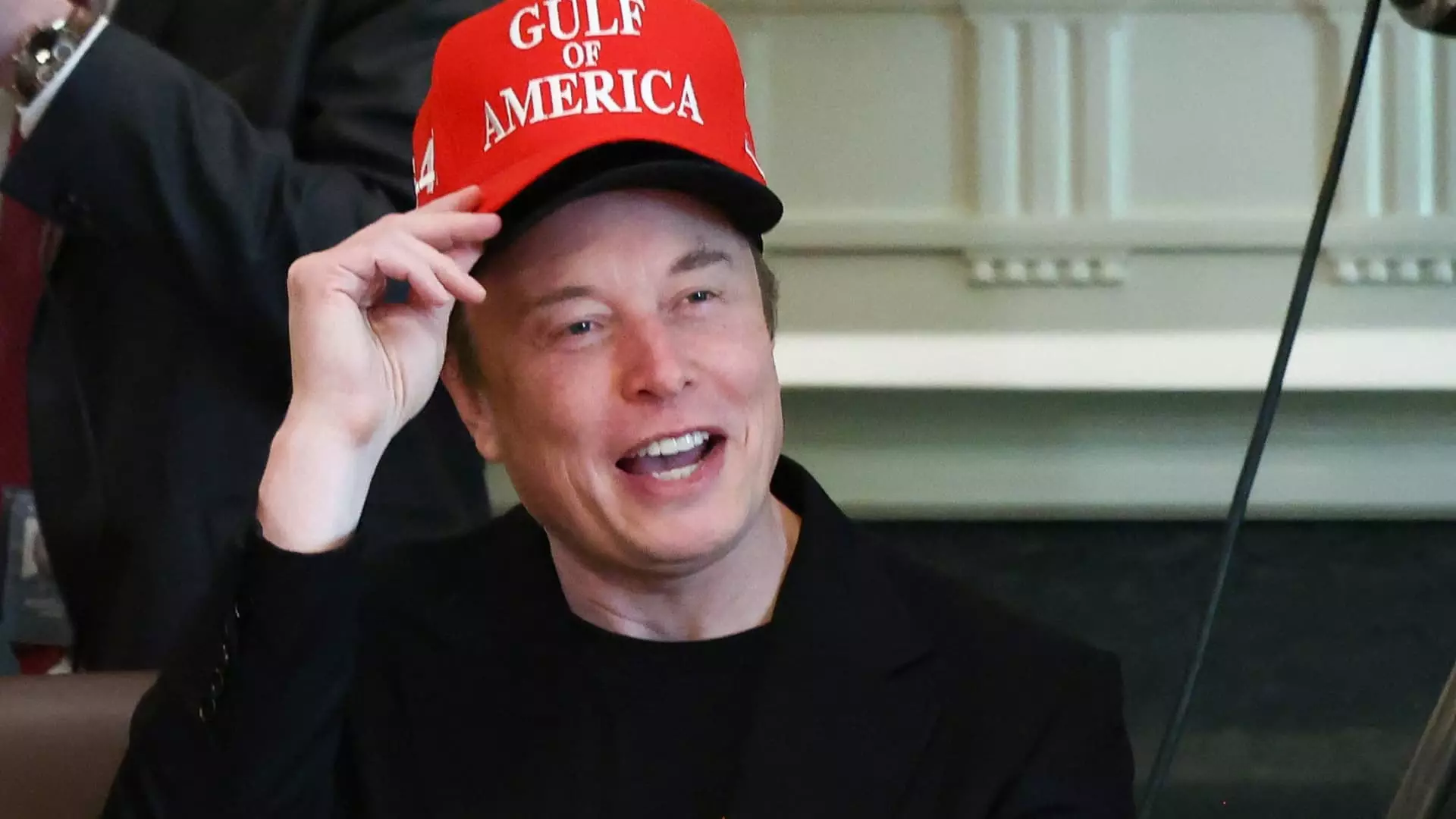Elon Musk, a figure synonymous with future technology, innovation, and disruption, has bid farewell to his role in the Trump administration, specifically at the helm of the newly minted Department of Government Efficiency. His leadership was supposed to usher in a new era of fiscal restraint, but instead, it has uncovered deeper flaws within the administration’s approach to governance. Musk’s gleaming ambitions clashed with political realities, casting shadows on the notion of efficiency he claimed to champion.
Musk’s declaration of gratitude to Trump for “the opportunity to reduce wasteful spending” starkly contrasts with the chaos that marked his tenure. Critics have argued that transforming government endeavors into a corporate model under a charismatic entrepreneur lacks consideration for the delicate fabric of public service. While Musk has undoubtedly disrupted traditional industries, translating that success into effective government is a task teetering on the edge of farce.
The DOGE Dilemma: Innovation or Illusion?
At the core of Musk’s governmental strategy was the ambitious DOGE initiative, a plan touted as revolutionary for increasing efficiency in federal operations. However, when the person behind that project is embroiled in colossal legal challenges and characterized by unpredictable decision-making, it raises the question: can a disruptor really reform a system as intricate as the federal government?
Musk’s recent criticisms of Trump’s spending bill reveal a significant fracture between the administration’s fiscal objectives and the realities governing the political landscape. Instead of unifying behind a common goal—streamlining federal operations—Musk’s rhetoric of efficiency often felt like a mere marketing ploy. With his departure, there’s a palpable sense of relief that the bold ambition to reduce government spending could be steered back towards pragmatic reforms.
The Price of Innovation in Governance
Musk’s struggles with the law are becoming increasingly pronounced, culminating in lawsuits over alleged violations committed during his pursuit of government efficiency. The murky waters of corporate governance bleed into the public sphere, creating a confusion that undermines both businesses and administrative bodies. For a CEO leading monumental companies like Tesla and SpaceX, his capacity to juggle responsibilities between the boardroom and the White House raises ethical concerns.
The complaints from pension fund leaders about Musk needing to devote at least 40 hours a week to Tesla reflect a growing unease about the blurred lines between government and corporate responsibilities. This situation illustrates a significant dilemma: can high-profile CEOs, whose leadership styles thrive on unconventionality, genuinely serve the public interest when their attention is divided?
Room for Hope: Reimagining Government Efficiency
While Musk may have departed, his initiatives serve as a flashpoint for re-evaluating government efficiency in the modern era. There’s potential in reassessing how innovative thinkers can contribute positively without straying from core democratic principles. Creating a fusion of responsible governance and innovative solutions should be the goal, but it should be done with the understanding that the public sector needs more than just a hunger for disruption; it requires stability, ethical governance, and a genuine commitment to the common good.
In light of Musk’s exit, the path forward is laden with both challenges and opportunities. Reforming government isn’t about the exotic ideas of billionaires; rather, it’s about fostering collaboration among diverse sectors, including civic engagement, policy innovation, and ethical leadership. As Musk steps back to focus on his enterprises, it could be the chance for a new breed of leadership to emerge, one that prioritizes cohesive government policies over mega-projects.

